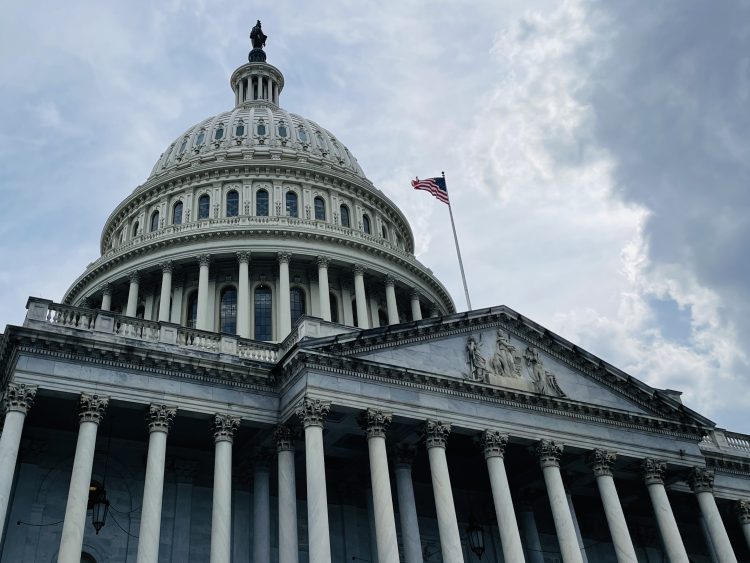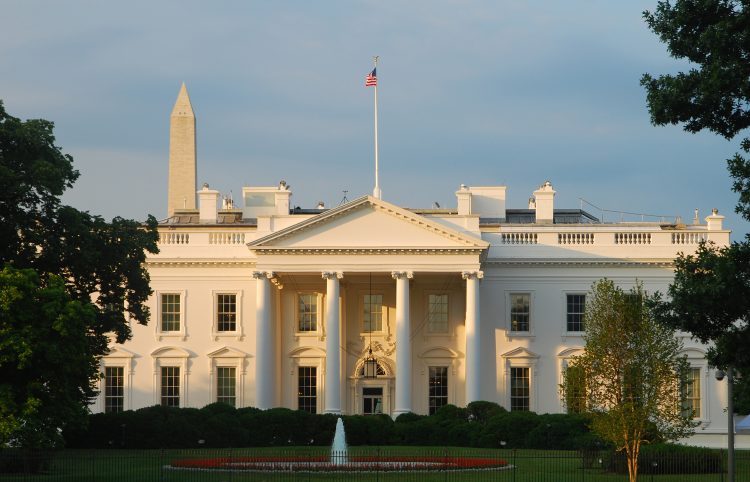This week on Facing the Future, Concord Coalition Communications Director Av Harris and I discussed the military and economic fallout from the Russian invasion of Ukraine. Our guest was former Congressman Richard Swett (D-NH), who also served as US Ambassador to Denmark, a NATO member, from 1998-2001. The first major land war in Europe since World War II is already having a dramatic impact on the price of gasoline and influenced Congress to increase defense appropriations, emergency military aid to Ukraine and humanitarian assistance.
Later in the program, I spoke to Concord Coalition Policy Director Tori Gorman and Chief Economist Steve Robinson about Congressional action on the budget as well as the strong February jobs report.
For Swett, watching the Russian invasion unfold with its devastating human catastrophe is particularly horrifying because of his many personal ties in Ukraine. In fact, Swett was in Ukraine just last October to commemorate the 80th anniversary of the Babyn Yar massacre of more than 100,000 Jews and other civilians in Kyiv. Swett also served as an international election observer during the 2014 “Orange Revolution” that saw a popular, pro-Western government elected under threat of state-sponsored police and military crackdown. Swett says there were many signs of weakness by the US, NATO, and the European Union over the years that emboldened Russian President Vladimir Putin’s aggressive, expansionist agenda. But now, he says our mission cannot be any clearer.
“We should shut down the Russian economy,” says Swett. “The problem there is that Russia is being driven into the arms of China and that creates another Cold War Axis that we are going to have to deal with. We are going to have to do everything we can to support Ukraine. They are showing incredible bravery, this is 41 Million people who are committed to saving their homeland, and are ready to go to the very last man and woman to defend their country. They need all the support they can get. And not just Tomahawk Missiles and anti-tank missiles. They need to have the air power and the ability to cover the air to keep the Russians away from their installations. They need to have military equipment, ammunition, arms and devices. And then there’s the humanitarian aid. They need food, and they need fuel, for civilians and for their military.”
Swett says that even though there are numerous risks that further American and European action to support Ukraine could trigger a wider military conflict, he supports the Biden administration’s decision to ban the importation of oil and natural gas to further squeeze the Russian economy. But he says we also need to increase domestic energy production to avoid dependence on fossil fuels from foreign adversaries.
“Our whole policy towards energy and national security have not been intertwined sufficiently to be realistic about how to deal with circumstances that we are dealing with today,” said Swett. “We were energy independent before Biden took the White House. We need to get back to that energy independence. We should be supplying energy to Europe. I’d rather supply energy to our friends than our enemies. That doesn’t mean that we’re never going to address the environmental issues that we are starting to address. We can be environmentally responsible without putting ourselves at risk to these kinds of military events.”
Swett says in the short term, prices for energy will spike and this will put upward pressure on inflation across the board, especially if China continues to support its alliance with Russia and limits American access to cheaper consumer goods.
Concord Coalition Policy Director Tori Gorman says the military and economic fallout from the war in Ukraine also spurred Congress to quickly change the contents of the omnibus spending package working its way through the House and Senate.
“The Defense budget is going to look markedly different than what appropriators agreed to a couple of months ago,” said Gorman. “Around Christmastime they agreed to top line spending levels for defense and nondefense, and the war in Ukraine threw that playbook out the window. Biden’s original budget requested $715 Billion for the defense budget. The tentative agreement a few months ago was $740 Billion. We are going to go beyond that obviously with a Ukraine aid package that originally started at $6 Billion, then it went to $10 Billion, and now it’s at $12 Billion. So we’ll definitely see a much larger defense budget than originally anticipated.”
A new bipartisan omnibus spending agreement reached after this program was recorded actually pushed the total defense budget up to $782 Billion, including $13.6 Billion in new aid to Ukraine. A $15.6 Billion boost in COVID relief funding was also inserted, but later stripped from the package.
Hear more on Facing the Future. I host the program each week on WKXL in Concord N.H., and it is also available via podcast. Join me and my guests as we discuss issues relating to national fiscal policy with budget experts, industry leaders, and elected officials. Past broadcasts are available here. You can subscribe to the podcast on Spotify, Pandora, iTunes, Google Podcasts, Stitcher, or with an RSS feed. Follow Facing the Future on Facebook, and watch videos from past episodes on The Concord Coalition YouTube channel.
Continue Reading











